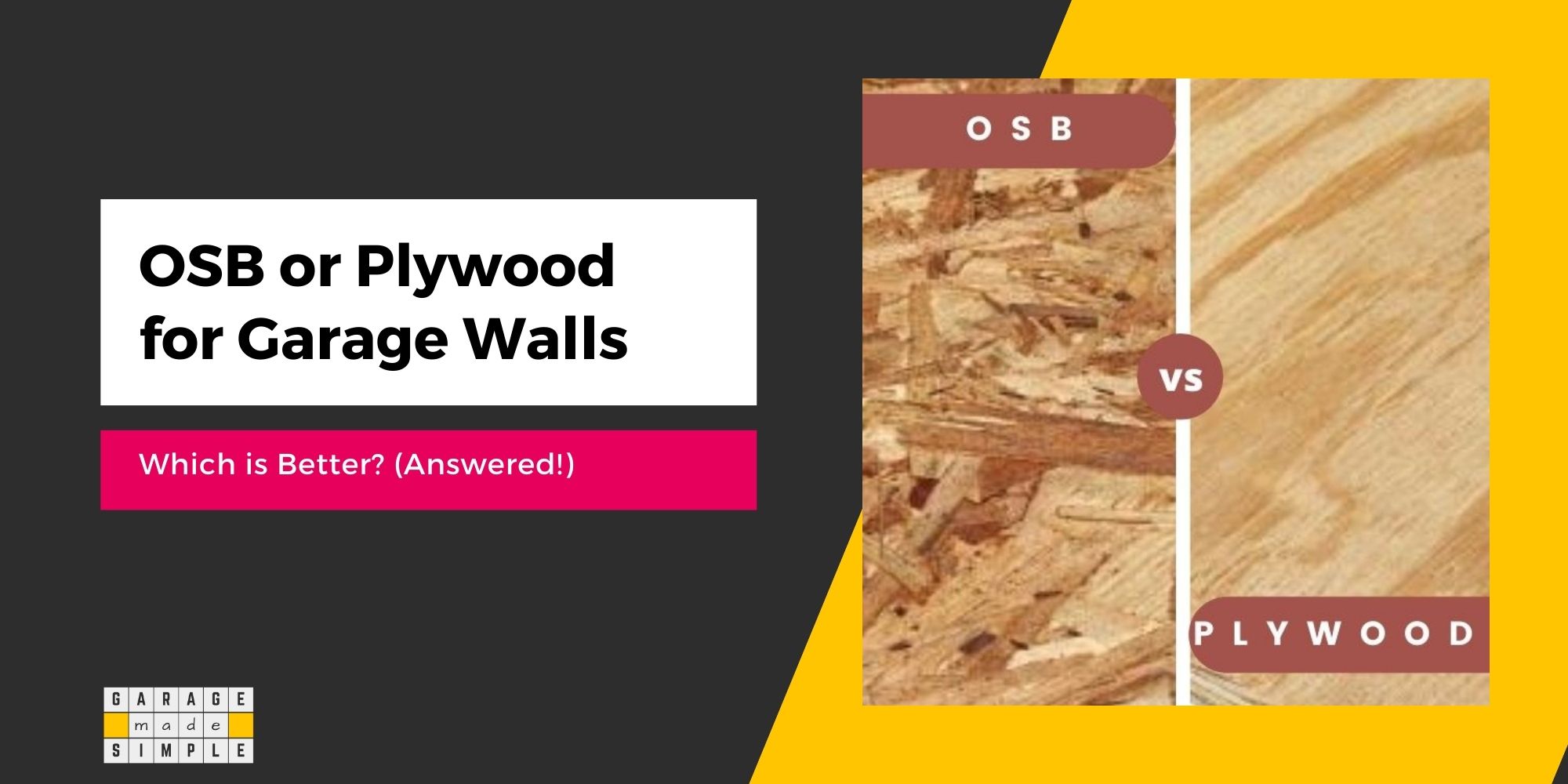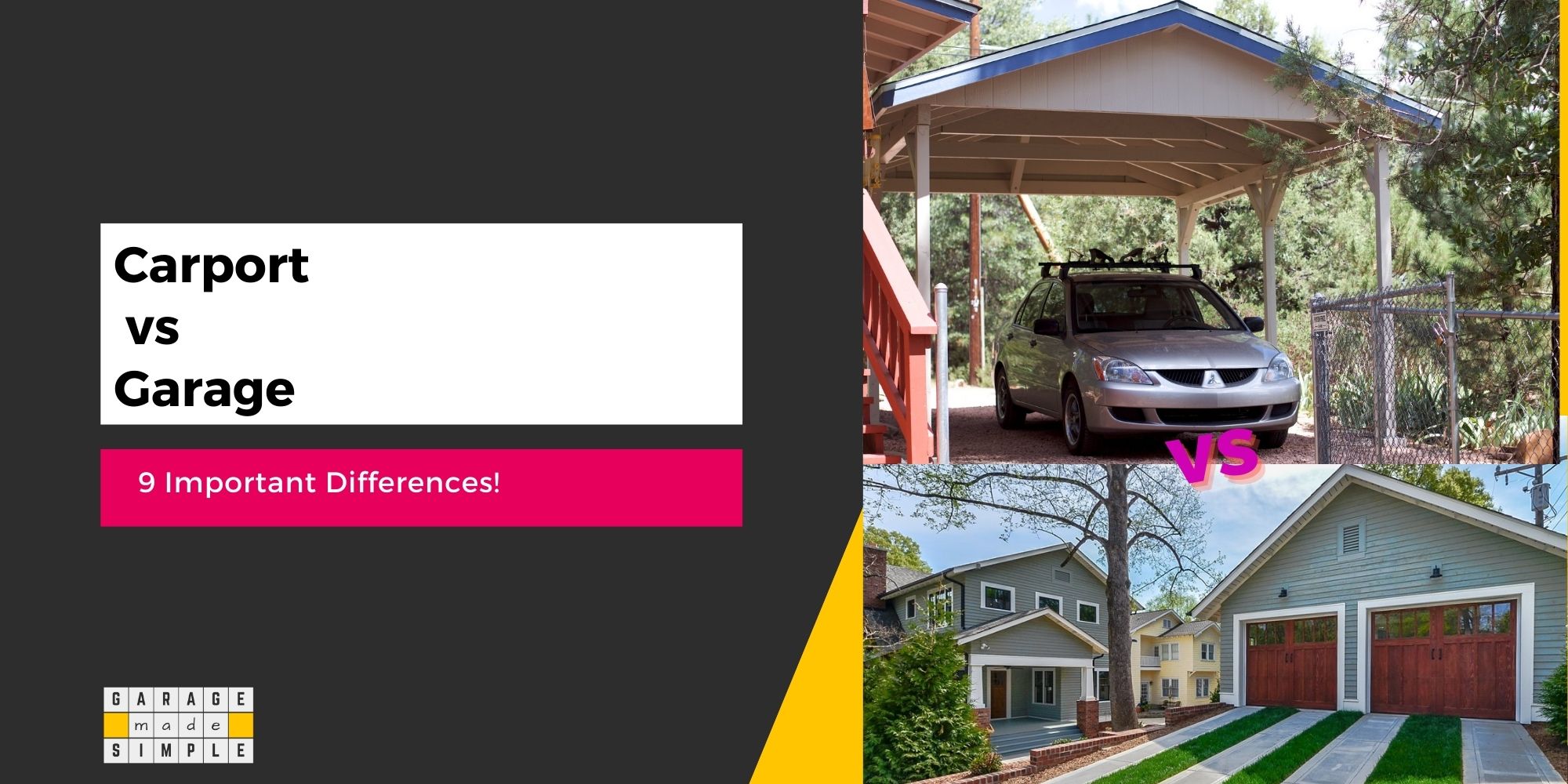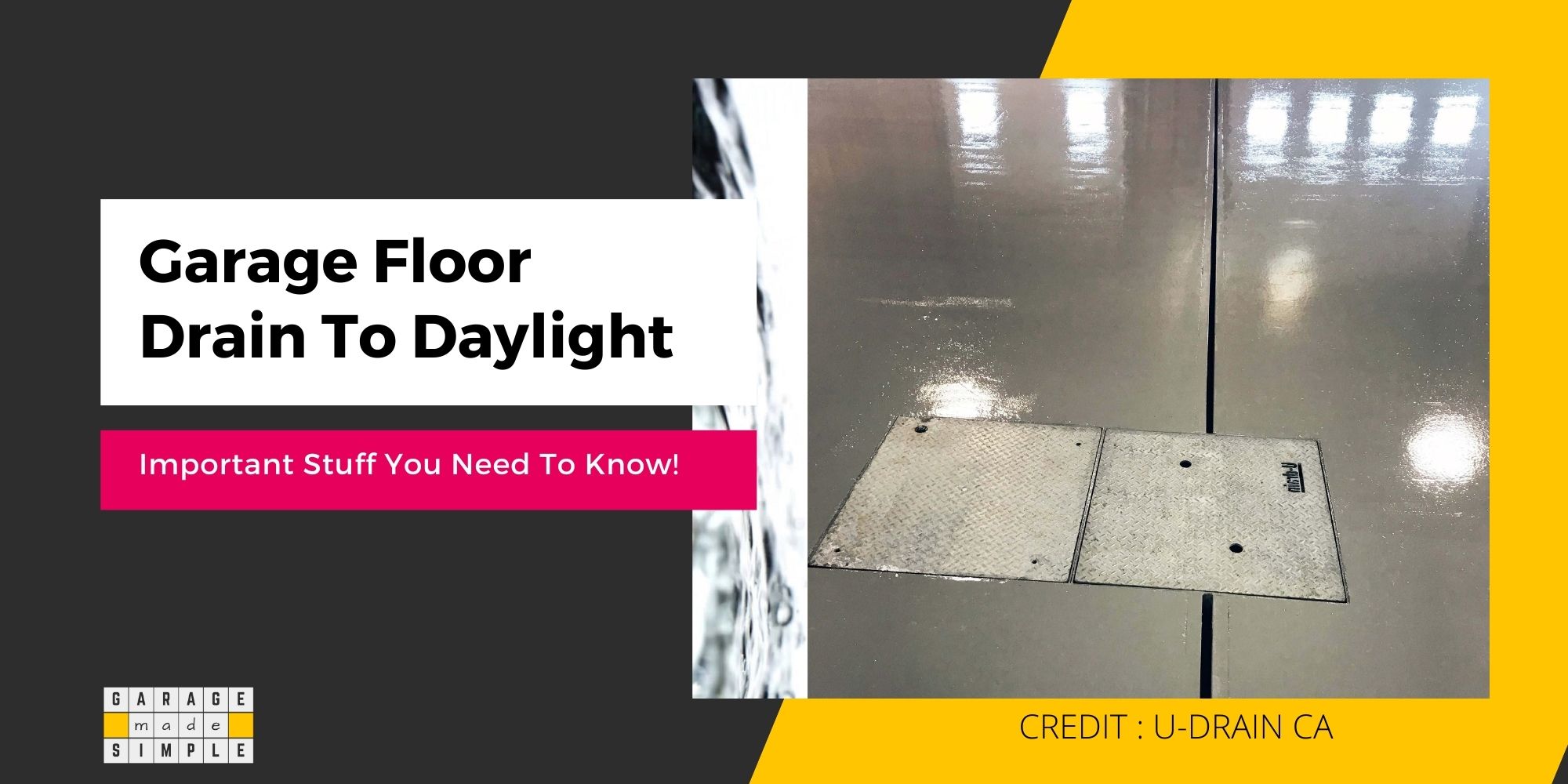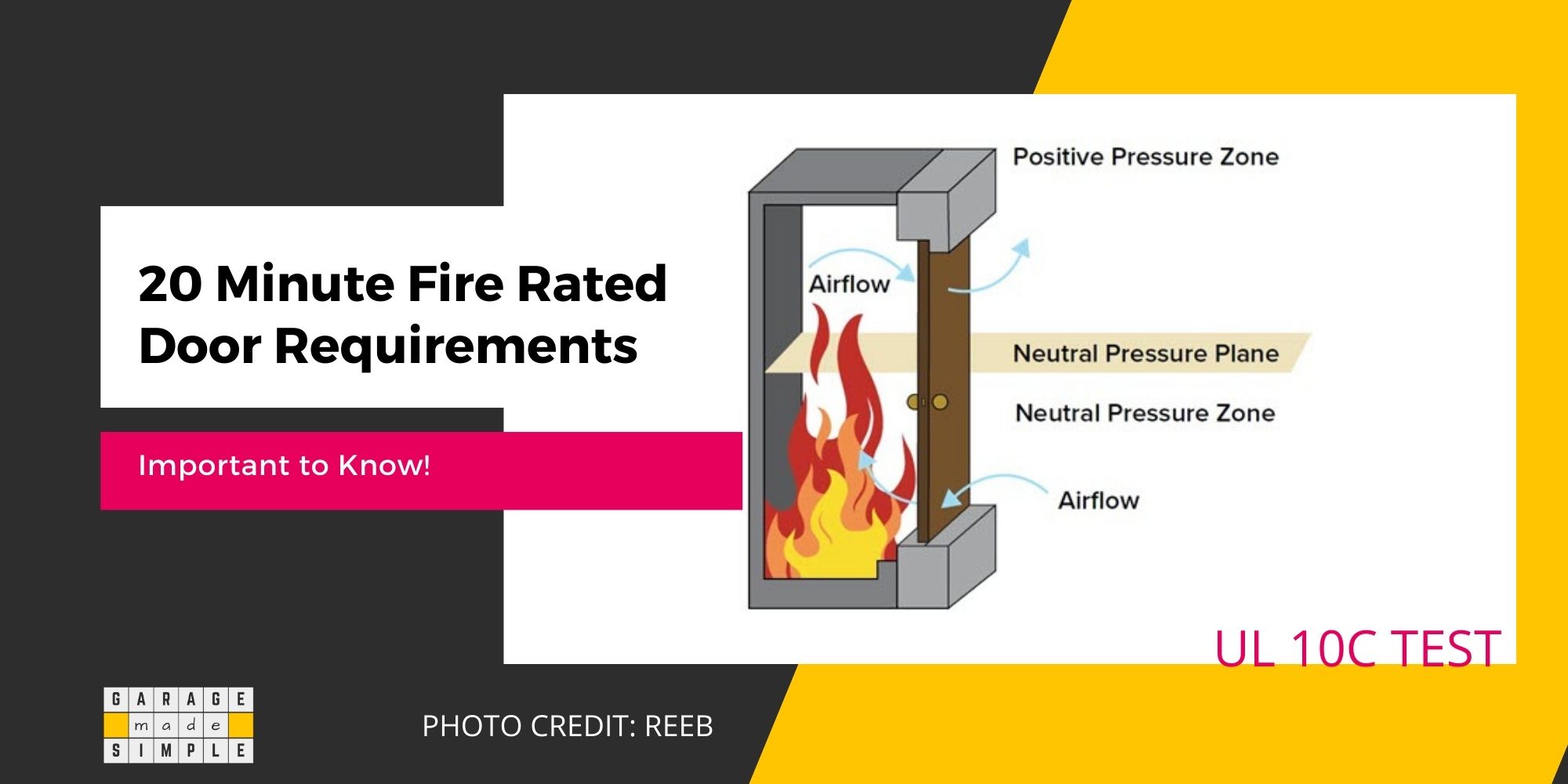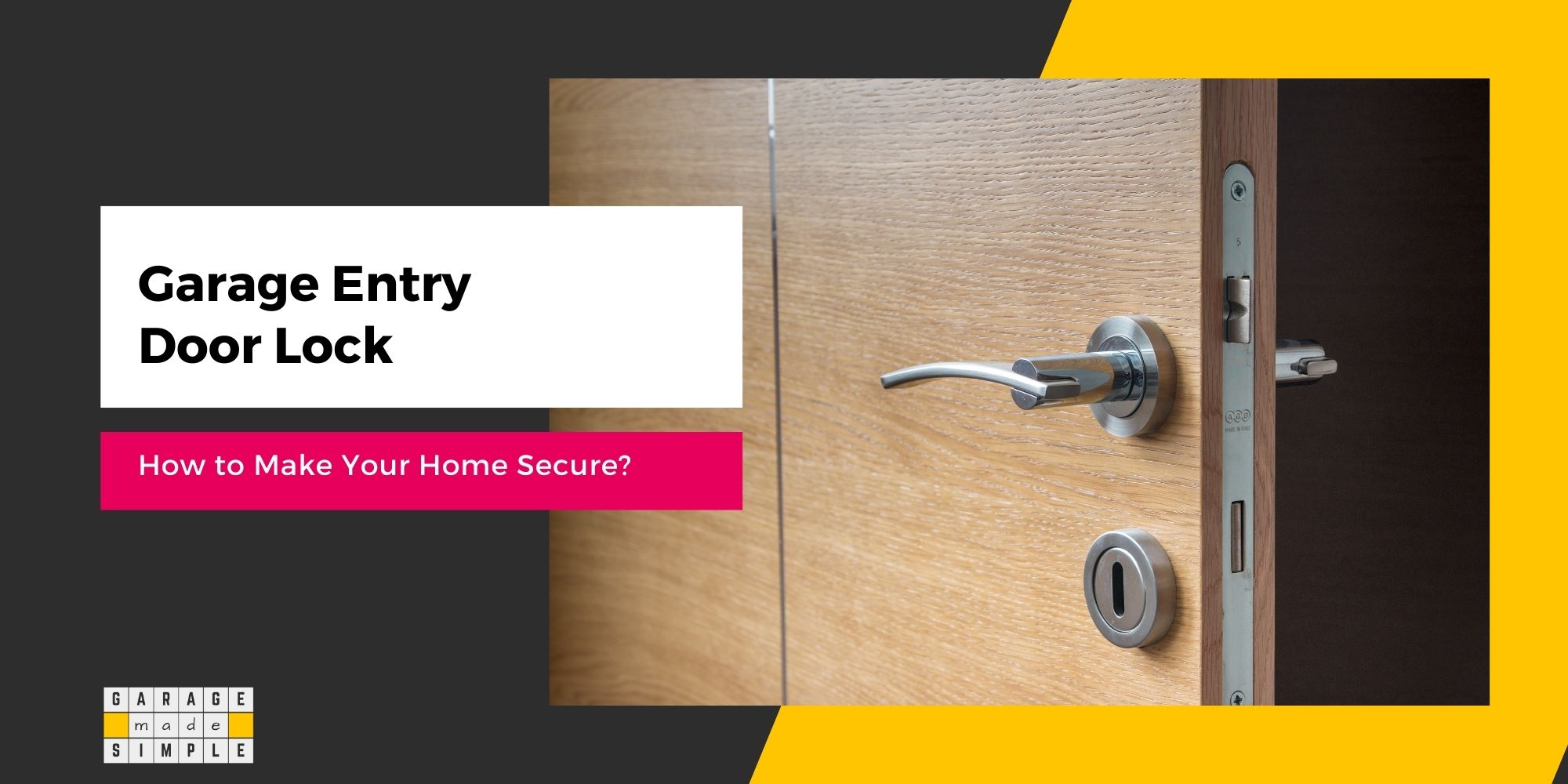5 Reasons Why a Steel Garage Entry Door is the Best Choice!
As an Amazon Associate, I earn from qualifying purchases.
Does a Garage Entry Door Have to Be Steel?
An attached garage necessarily has a door that leads from the garage to the house. This is known as the Garage Entry Door. The Garage Entry Door needs to comply with the Code in addition to performing all the functions of a door. But does the garage entry door have to be steel?
A garage entry door does not have to be steel. It could be any material as long as it complies with the code. However, a steel garage entry door is often the best choice!
A garage entry door, like any door in the house, could be made from wood, steel, fiberglass, aluminum or even PVC. Each door material has its pros & cons. In this post I will examine how steel, fiberglass and wood rate on the following 5 parameters.
- Code Compliance
- Affordability
- Corrosion Resistance
- Impact Resistance
- Weather Resistance
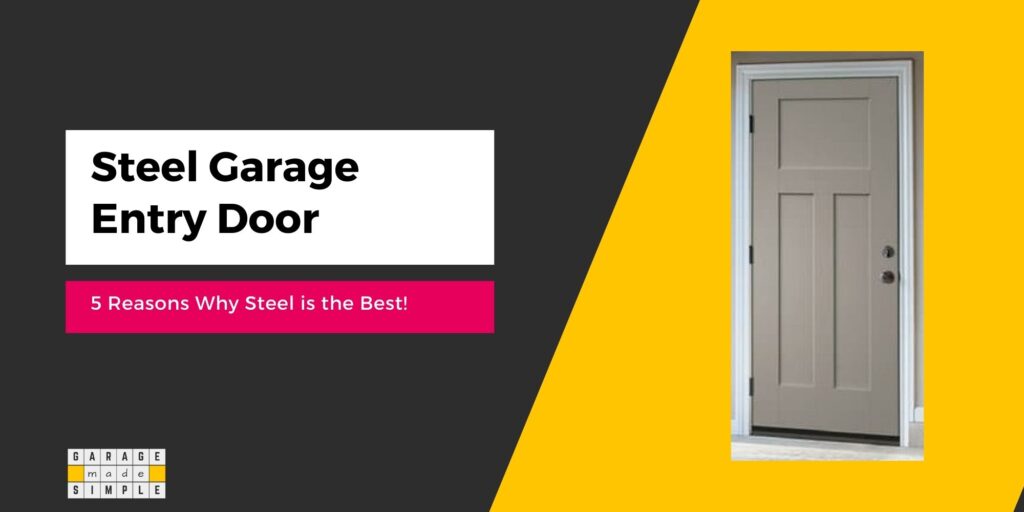
So let us get into this.
1. Code Compliance
A garage entry door must comply with the local building code. The local building code draws heavily from the International Residential Code (IRC). It is highly unlikely that the local code will be less stringent than IRC.
IRC considers the garage entry door as an opening from the garage into the house, a dwelling unit (ADU). It is imperative that the garage entry door safeguards the lives of the inhabitants from potential danger.
The opening between the garage and the house must be equipped with a door that provides protection as per Section R302.5.1 of the 2021 edition of the International Residential Code (IRC).
R302.5.1 Opening protection: Openings from a private garage directly into a room used for sleeping shall not be permitted. Other openings between the garage and the residence shall be equipped with solid wood doors not less than 1-3/8 inches (35 mm) in thickness, solid or honey-comb core steel doors not less than 1-3/8 inches (35 mm) thick, or 20 minute fire-rated doors. Doors shall be self latching and equipped with a self-closing or automatic-closing device.
The take away from the above section is that the garage entry door must be:
- solid wood not less than 1-3/8 inches thick OR
- solid or honey-comb core steel not less than 1-3/8 inches thick OR
- 20 minute fire-rated
A garage entry door made from any material will comply with the code provided the door is 20 minute fire-rated. But a 20 minute steel door will generally perform to a three hour standard.
Following is an excerpt from Steel Door Institute:
Because fire ratings are so frequently specified, comparative fire rating information is available for all four materials.
- Steel is the only door material that offers a three hour fire rating.
- Wood is inherently flammable. Therefore wood doors cannot readily achieve a high fire rating; 90 minutes tends to be the high end. As the fire rating increases, the cost generally does too.
- Aluminum and fiberglass doors are not as well-suited to fire resistance as steel due to the natural properties of the materials.
Do keep in mind that the Local Building Code authorities may have their own interpretation of the IRC. So please check & abide by the local building code interpretation.
2. Affordability
The three most popular material choices, when it comes to garage entry doors, are:
- Steel
- Fiberglass
- Wood
A steel garage entry door will be cheaper than a fiberglass or wood door with similar specifications.
For example, a JELD-WEN 36 in. x 80 in. Left Hand Inswing 6-Panel Primed 20 Minute Fire Rated Steel Prehung Front Door with Brickmould will cost around $675 at Home Depot.
On the other hand, JELD-WEN 36 in. x 80 in. Left-Hand 2 Panel Amaretto Fiberglass Prehung Front Door will cost almost $2400 at Home Depot. The price can range from $1100 to $3600 depending on the model.
They look pretty but they are expensive and not even fire rated.
3. Corrosion Resistance
Rusting is often cited as a weakness for steel. The fact is that iron rusts quite easily when exposed to the elements. However, steel may not rust that easily depending on the type of steel. Stainless steel does not rust at all!
Steel is made from iron mixed with other elements like carbon, silicon, manganese, nickel, etc. A variety of combinations are possible. And as a result there are many types of steel, designed for different end uses.
The grade of steel used for making garage entry door is pretty strong and is not likely to warp, deform or bend underweight, force or heat. Though inherently susceptible to rust, surface finishes such as galvanizing or anti- corrosive primer & paint coating ensure that corrosion is kept at bay.
Galvanizing is a process by which steel is coated with a thin layer of zinc. The zinc coating protects the steel beneath it from rust and makes it corrosion resistant.
Coating steel with paint is another way of giving steel a decorative finish and making it corrosion resistant.
In summary:
- Steel doors, unless stainless steel, can corrode. However, galvanizing or anti-corrosive coatings will protect it from corrosion in most environments.
- Wood doors do not corrode. However exposure to water or humid conditions can degrade wood and result in rotting.
- Aluminum doors can corrode, but just like steel, a corrosion-reducing finish may be applied to aluminum.
- Fiberglass doors do not corrode.
4. Impact Resistance
A wood garage entry door has very poor impact resistance. It will get scratched or gouged if you accidently hit it with a ladder corner or a lawn mower. Aluminum is a soft material and can also be scratched or dented by hits.
A steel garage entry door is more resistant to impacts as it is hard & tough. The physical properties of steel can be designed and controlled by adjusting the percentage of carbon in the steel. The steel used in garage entry doors is unlikely to dent from moderate impact.
Fiberglass has very high impact resistance and does not scratch or dent when hit by ladders or tools.
If impact resistance was the only criteria then fiberglass would perform better than steel when it comes to garage entry doors. Fiberglass garage entry doors are less prone to dents, scratches and deformations.
5. Weather Resistance
Wood, aluminum and fiberglass have a much lower weather resistance than steel.
Based on a test conducted by Steel Door Institute only steel doors can pass the FEMA 361 and ICC 500 tornado test (250 mph wind speeds).
Fiberglass doors get damaged under high wind conditions and are certainly not recommended for high wind velocity or hurricane prone zones.
Fiberglass also has a tendency to become brittle in cold climates making Fiberglass Garage Doors unsuitable for climatic zones rated 4 or more.
Conclusion
In conclusion, a steel garage entry door is a clear winner when it comes to code compliance, weather resistance and affordability. Fiberglass doors may have a slight edge over steel doors on corrosion & impact resistance.
Keeping the importance of each parameter in mind I believe that steel is the best material for a garage entry door!
Thank you very much for reading the post. I do hope you found it informative and useful.

